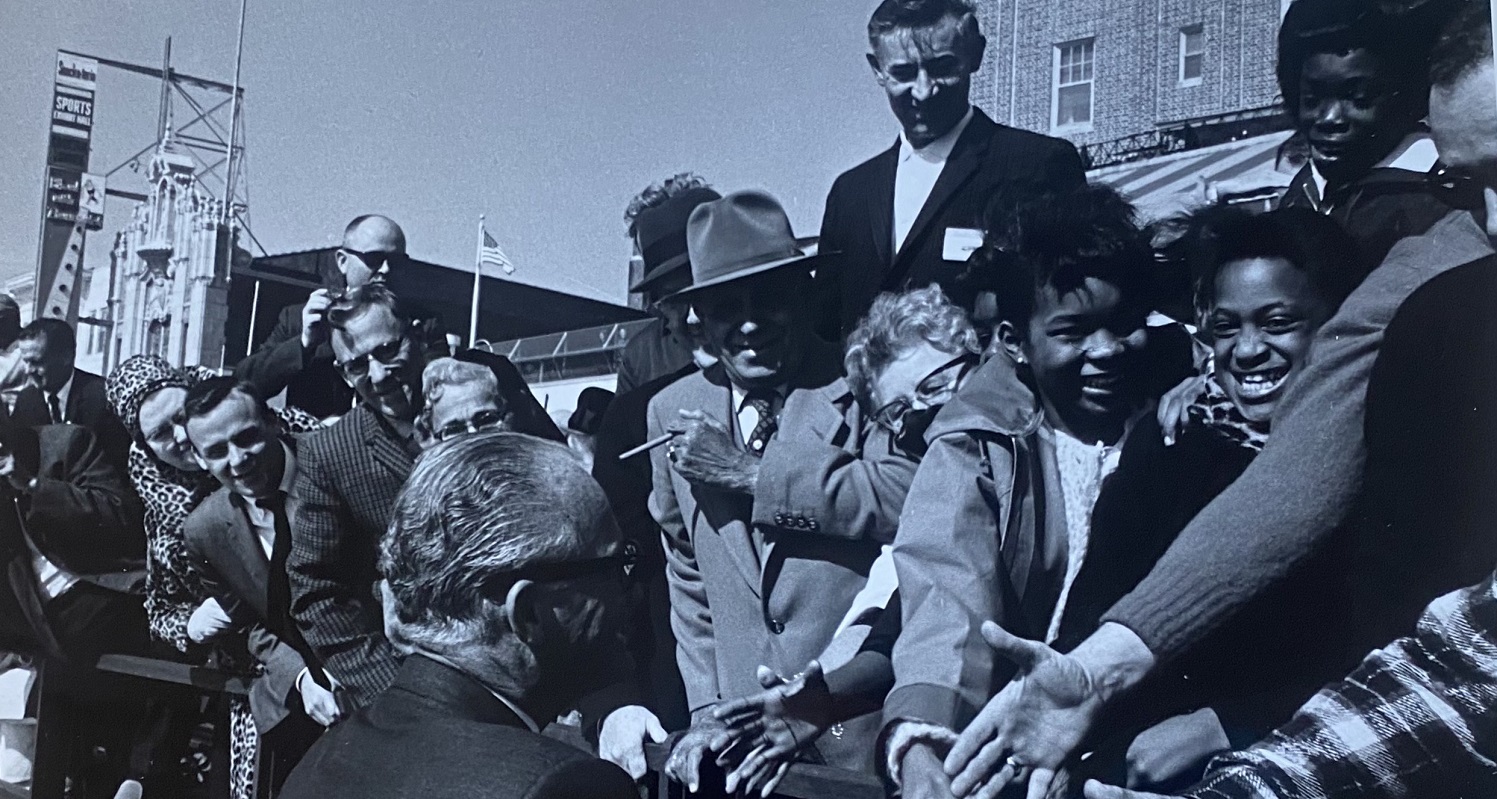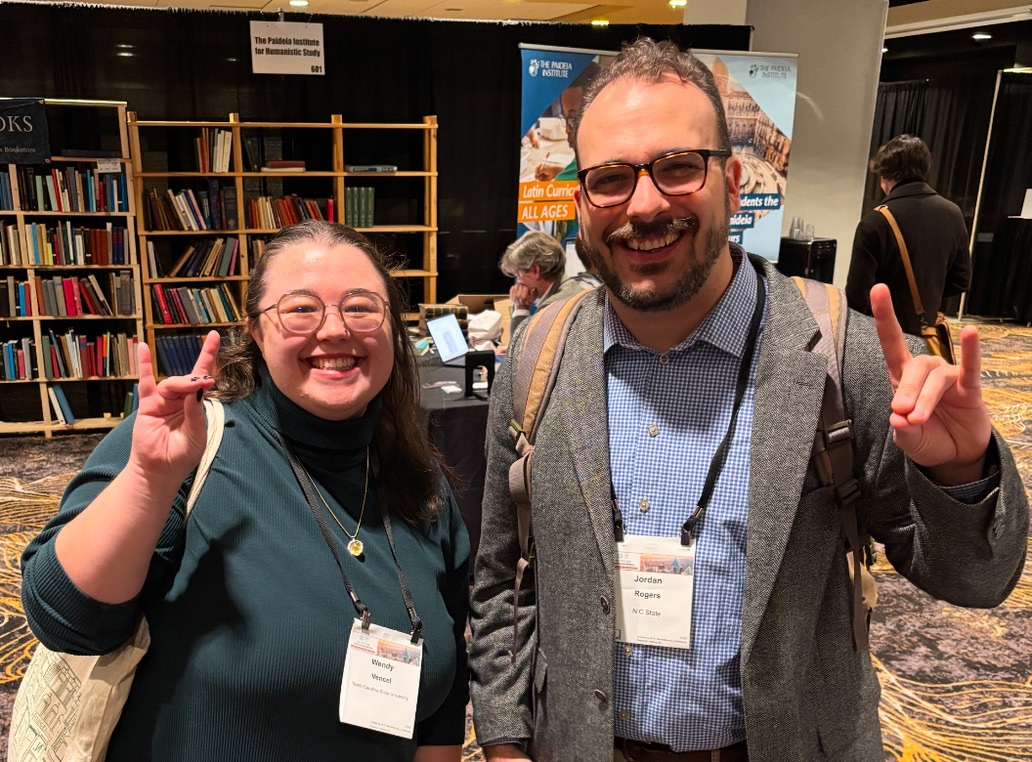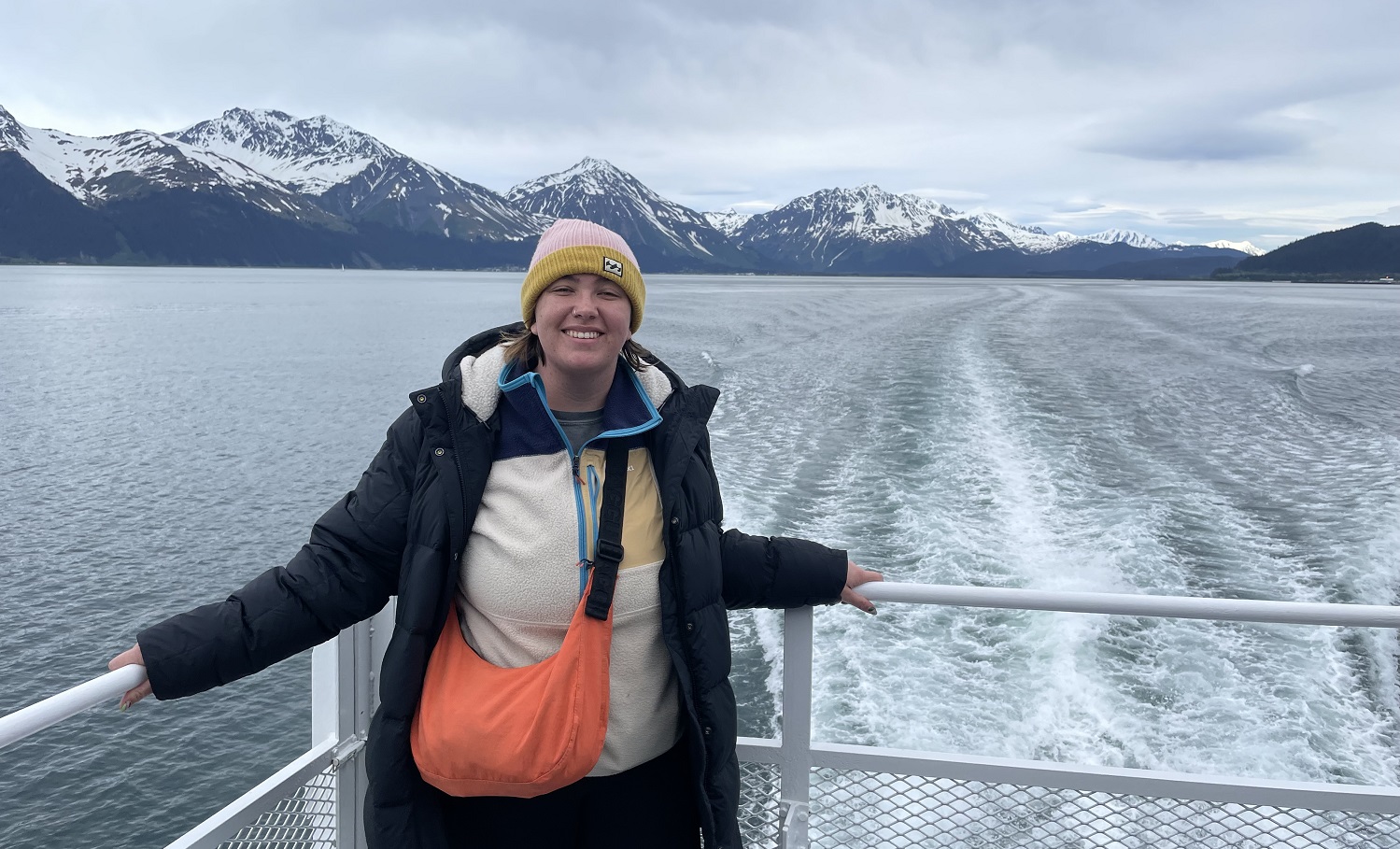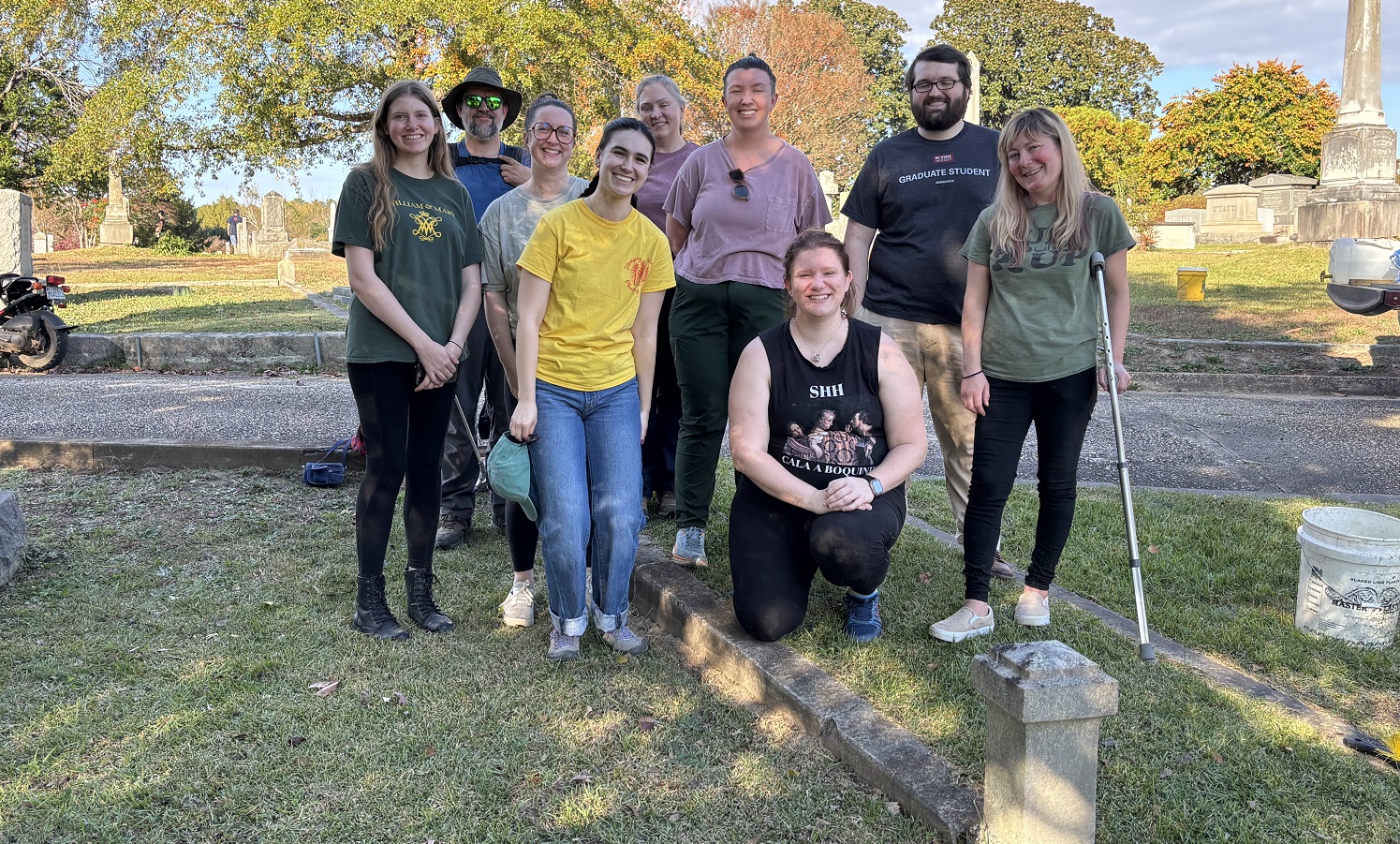History MA student, Katherine Russo, received a travel award to conduct research at ASU on Goldwater’s 1964 presidential campaign. She shared her story with us.
This October, I received a generous grant from the History Department to conduct research at Arizona State University in Phoenix, Arizona. My research concentrates on the contentious civil rights platform of Senator Barry Goldwater’s presidential campaign against Lyndon B. Johnson in 1964, with a focus on the campaign’s libertarian argument against the enforcement of desegregation statutes. Using the research conducted with the assistance of this grant, I will argue that the Goldwater campaign popularized an emphasis on individualism and anti-oversight, establishing the New Right’s frontier for the argument against desegregation in succeeding decades.
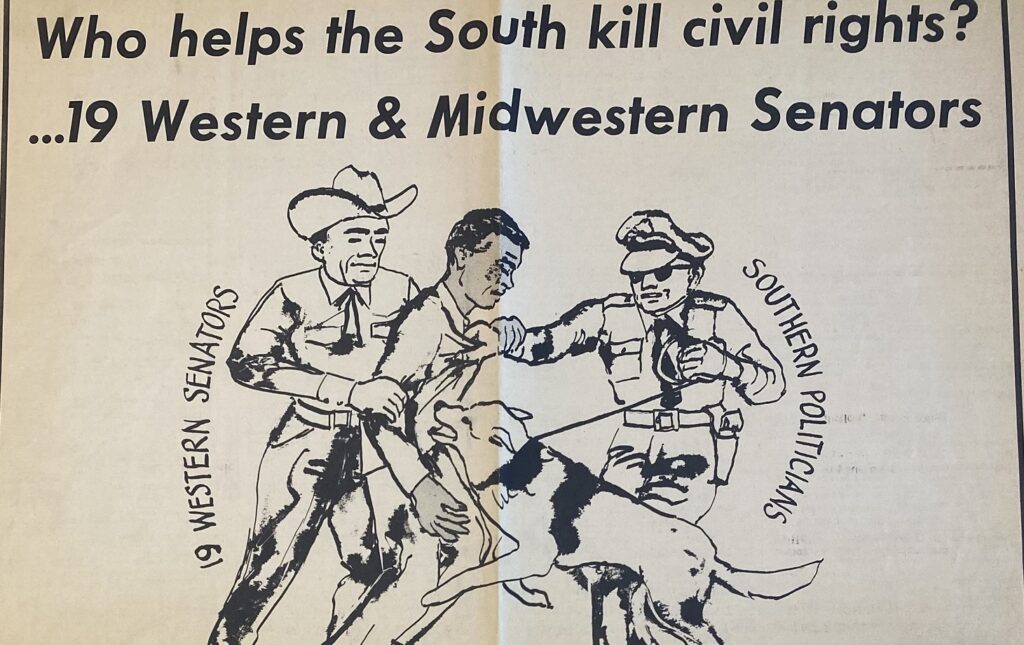
I sourced the majority of my research from the Goldwater campaign’s internal memos and position papers, which are held in the Personal and Political Papers of Senator Barry M. Goldwater collection at ASU. Much of the information I found challenged my preconceived notions about the topic at hand. For example, I was surprised to find a body of evidence denoting cases of African American voters who supported Goldwater in the press and on the campaign trail.
While in Phoenix, I also had a chance to view The Public and Personal Papers of Ernest McFarland at the Arizona State Archives. The collection includes materials regarding Goldwater’s civil rights record before the election that appear to contradict Goldwater’s 1964 campaign platform and provide a key perspective for contrast.
I also visited the Billie Jane Baguley Library and Archives at the Heard Museum, which holds an extensive collection of newspaper clippings pertaining to Goldwater’s record on civil rights and Indigenous issues. I was also granted the opportunity to speak with the on-site librarians and archivists such as Mario Nick Klimiades and DeLisa Brown-Guc, who served as vital sources of institutional memory and were immensely helpful in locating the information I was looking for. I want to extend my thanks to Dr. Voyles and the staff of the History Department for making these funds available and for offering this opportunity to me.
- Categories:
